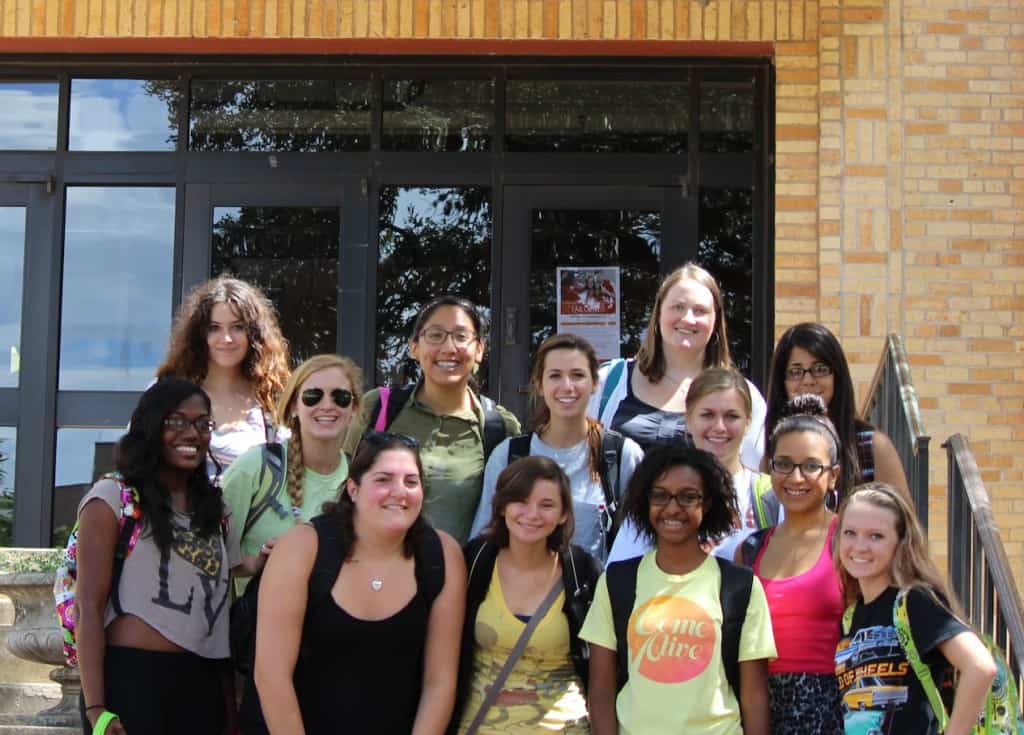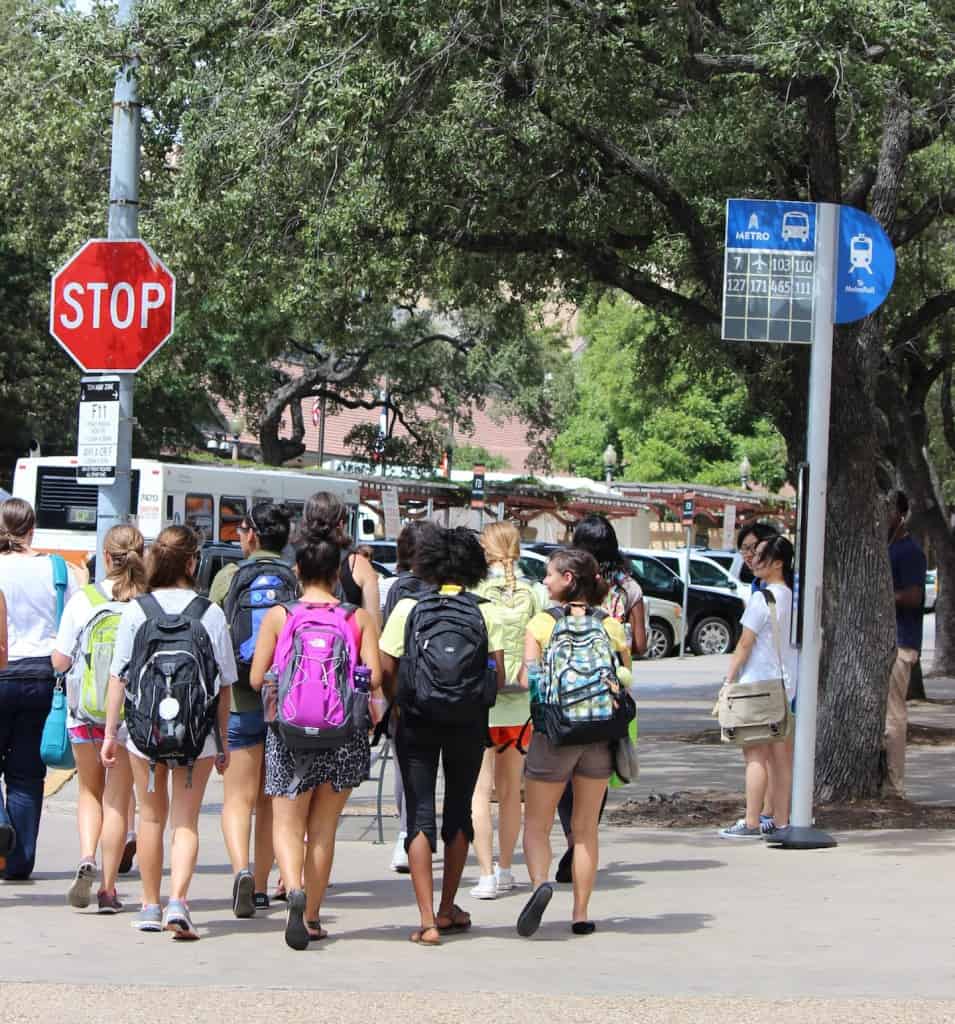It’s a Thursday afternoon early in the fall semester, and animated talk is coming out of a classroom at the School of Social Work. Topic of discussion? The city bus system. About a dozen social work undergraduates share tips on how to plan a trip using the CapMetro website, what are the available apps, and how to use your phone to find out when a bus is coming.

This is the weekly seminar of The Human Experience, one of the three Social Work First-Year Interest Groups, or Social Work FIGs.
An initiative of the university’s School of Undergraduate Studies, FIGs are cohorts of up to 25 first-year students who take classes together and develop community by attending a weekly seminar facilitated by a peer mentor and a staff or faculty member. FIGs can be based on colleges/schools, residence halls, or professional interests. Every incoming first-year student is eligible to participate, and can enroll by talking with their academic advisors during orientation.
The School of Social Work has been offering FIGs for several years, but in Fall 2013 it tripled the available spots. Currently, about half of the first-year undergraduate social work students are FIG members, or “FIGlets.”
“FIGs are one way in which our School offers a small community environment within UT,” explained Kristen Kessel, the School of Social Work Academic Advisor for the Bachelor’s program and staff member facilitator of The Human Experience FIG. “As one of the largest universities in the nation, UT can be pretty intimidating to first-year undergraduates. We are here to make sure they feel supported and they get what they need to make a successful transition from high school to college.”
During the weekly seminars, students discuss issues relevant to the field of social work, such as career paths, as well as issues relevant to being a first-year student, such as time-management strategies, university resources, and Austin life.
“Today this FIG is hitting two Austin must-knows: the city bus system and Amy’s Ice Cream shop. We are all riding the bus to Amy’s,” said Kessel.
Social work student Halie Marksberry was in a FIG during her first year, and is now an enthusiastic FIG peer mentor.
“What I enjoy the most about being a peer mentor is making connections with FIGlets,” said Marksberry. “I love hearing their funny stories and helping them if they are struggling. We can all come together to learn and thrive in this crazy madness we call college!”
Lisa Valdez, a program coordinator at the university’s First-Year Experience Office, said to The Daily Texan that students involved in FIGs are most successful, with higher GPAs and increased rates of retention and four-year graduation compared to those that not enrolled in FIGs. Increasing the four-year graduation is one of the university’s top priorities, with a goal of 70 percent of students graduating in four years by 2016.


